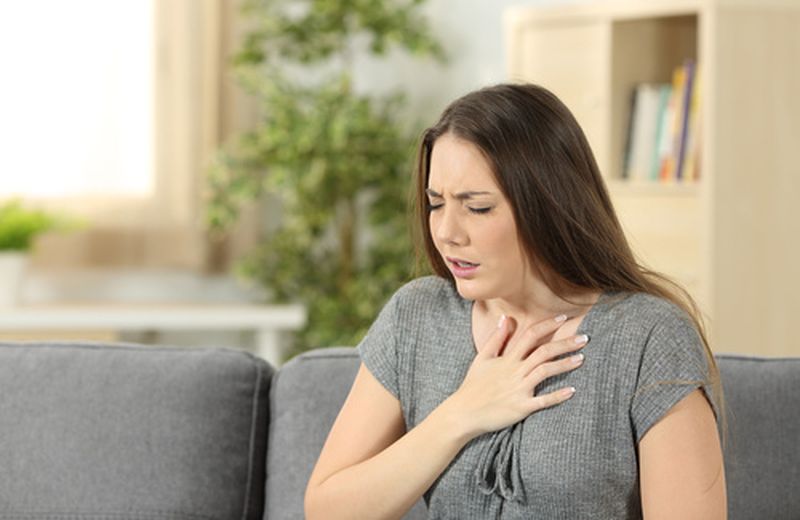Anxiety and breathing
A series of reflections and practical advice on the undeniable link between the state of anxiety and breathing. Let’s see how one affects the other.

Fighting or controlling anxiety is, in our age full of psychological pressures and competition , one of the most widespread concerns in the world, so much so that we can experience a state of anxiety at the idea of anxiety itself.
Everyone at least sometimes in life comes to live a state in which worry, stress and fear come to directly affect the activities of the body , such as palpitations, the sense of balance and breathing, accompanied by nausea , chest pain and stomach cramps.
It is a sort of evolutionary vestige, or a residual mechanism of the previous evolutionary phases in which feeling surrounded by immanent dangers was fundamental to trigger a sort of alert and therefore an individual survival condition in which everything else becomes secondary.
The chemistry of the brain then triggers a whole series of processes that change the psychic state , preparing the individual for a serious threat, and changing the physical state for the same purpose, increasing breathing, palpitation , sweating.
Anxiety can result in two types of behaviors, both of which can be defined as excessive: paralysis due to fear , in which one becomes a victim of one’s psychophysical alterations, and overreaction due to anger , in which one cannot control the discharge of adrenaline.
Breathing impaired by anxiety
We have seen that at a symptomatic level, anxiety induces an altered breathing state , typical of those who face a serious threat and suitable to withstand the increased heart rate.
Breathing, however, can pass from a passive symptom to the main tool to dissolve the state of anxiety , and instead of experiencing its modification as the result of an alteration of consciousness, it becomes the tool with which to normalize the latter again, reversing the sequence of the process.
First of all it is important to be able to understand if the change in breathing is really due to a state of anxiety or a health problem, perhaps heart. If it’s not about anxiety, the best thing to do is call your doctor . As you age, or if you have heart problems or pre-existing diseases, don’t risk a hasty diagnosis and call your doctor.
Read also Panic attacks, breathing exercises >>
Recognize hyperventilation
Let’s talk about hyperventilation for a moment. Sometimes in a state of anxiety it happens that the breathing becomes very fast or deep , as if you have the feeling that you need to take in more oxygen. Here, it is often the opposite, that is a reaction to an overabundance of oxygen and consequently a lack of CO2 . We realize this if we begin to have an excessive sense of lightness, a sense of pressure in the chest with the heart racing, accompanied by difficulty in controlling the legs. This happens due to breathing too fast, breathing too short, or even trying to artificially control breathing instead of letting nature do it.
Know the ins and outs of corrective breathing
What should we focus on then? Let’s start with the details that make the difference. First of all, the ideal is to inhale deeply with the mouth , in order to bring the necessary oxygen, and exhale slowly through the nose , in order to re-establish a sustainable respiratory and circulatory rhythm.
Second but not least: focus on your stomach trying to fill your belly with each breath. This helps us to give less importance to the chest , often home to unpleasant sensations that only increase anxiety, and to increase the depth of our breath.
Hold your breath for a few seconds (count 7 heartbeats) between inhalation and exhalation, so as to notice that with each breath the palpitations decrease significantly, even if slightly.
This technique leads to reduced hyperventilation and thus to regain mastery, although secondary symptoms such as chest pain can take minutes to disappear completely. Focusing excessively on the symptoms of anxiety generates additional anxiety, so don’t focus too much on unnatural breathing and take 7 to 10 minutes of your own time to slowly regain control of yourself .
Anxiety is a state that does not disappear in a few seconds and that can have small escalations, so do not be alarmed and concentrate, as mentioned, on the movements of the belly. Remember that it is important to balance CO2 with oxygen , so slow breathing with your hands in front of your mouth can seriously help ease many unpleasant symptoms.




























+ There are no comments
Add yours